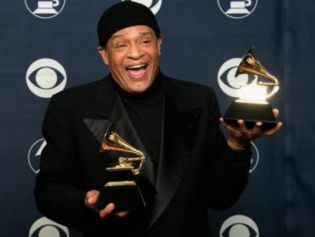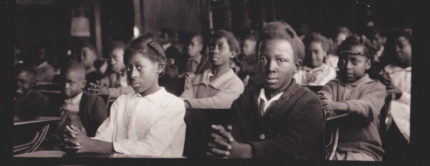Joe Lovano, Cross Culture: The saxophonist clearly feels he has a thing going with his double-drummer band, Us Five. This is his third album with this group, and unlike the previous record, this one is almost entirely made up of original compositions. He tweaks his own sonic palette, adding a mezzo-soprano saxophone and tarogato to the proceedings, and welcomes guest guitarist Lionel Loueke to spice up the proceedings on six tunes. Out Jan. 8.
Jack DeJohnette, Special Edition: Around this time last year, drummer Jack DeJohnette was named an NEA Jazz Master and launched a yearlong 70th birthday tour. Here’s a reminder why he’s worthy of the hubbub: A four-disc box set reissuing the 1979-1984 albums made with his Special Edition bands. These groups featured star sax soloists such as David Murray, Arthur Blythe and Chico Freeman. From what I’ve heard of this music, it reveals his composing to be both heady and earthy, ancient and of the future. Here’s a chance to rediscover why DeJohnette is more than just a great drummer. Out Jan. 15.
Chris Potter, The Sirens: You might say that the saxophonist Chris Potter plays with an epic or heroic quality: Whatever predicament he finds himself in, he’s reassuringly strong enough to play his way out of it. Appropriately, his newest project is actually a song cycle inspired by The Odyssey. On his boat is the big-name crew of Craig Taborn (keys), David Virelles (more keys), Larry Grenadier (bass) and Eric Harland (drums). Sing, muse. Out Jan. 29.
Rudresh Mahanthappa, Gamak: Recent years have seen Rudresh Mahanthappa become a star in the jazz world for his busy-bee alto saxophone and the way he seamlessly incorporates South Asian music into his repertoire. His new album, Gamak, returns to the quartet formation responsible for his breakout successes, with a key personnel addition: Dave Fiuczynski, a guitarist with a similar inclination for virtuosic fusions. Mahanthappa and “Fuze” both play in the band of the aforementioned Jack DeJohnette, and the Gamak repertoire reflects their ongoing collaboration. Out Jan. 29.
Matthew Shipp, Greatest Hits: It’s hard to know where to start with improvisers as prolific and unrestricted as pianist Matthew Shipp. That’s why a forthcoming Greatest Hits compilation might serve as a good introduction for the curious. It’s culled from his output over 12 years on the Thirsty Ear record label — the company where he curates a series of jazz-influenced releases. Acoustic and electronic; organic and conceptual; solo, trio or with some other configuration, the disc showcases his range. Out Jan. 29.
John Hollenbeck, Songs I Like A Lot: The composer and percussionist John Hollenbeck admits he was never really into pop music as a kid. But he couldn’t deny all of it, and when he received a commission from the Frankfurt Radio Big Band, he had a jazz orchestra to indulge his Jimmy Webb earworms. The result is this collection of mostly covers, from Ornette Coleman to Imogen Heap to “Man of Constant Sorrow,” featuring the voices of Theo Bleckmann and Kate McGarry, and dressed up in the intersecting minimalism thing he’s so good at. For a taste, check out Hollenbeck’s Newport 2011 set, where his Large Ensemble played some of these tunes. Out Jan. 29.
Miles Davis, Live In Europe 1969: The Bootleg Series Vol. 2: The working band that Miles Davis led from 1969 to 1970 — made up of living legends Wayne Shorter (saxophones), Chick Corea (piano), Dave Holland (bass) and Jack DeJohnette (drums) — was never captured by Miles’ record company. In his autobiography, he regretted this: “Man, I wish this band had been recorded live because it was really a bad motherf—–,” he wrote. But European state broadcasters did document a few concerts, including video footage. That’s made possible another three-CD + DVD box of a fascinating Miles Davis quintet tearing it up on stage. Out Jan. 29.
Wayne Shorter, Without A Net: Speaking of Wayne Shorter, there’s a good chance this will end up as the consensus jazz album of the year. When one of the most influential composers in jazz history puts out a record, and many of the tunes are new, and they’re played by his acoustic go-anywhere quartet of 10 years … yeah, I’m excited too. The collection of live recordings, including the 23-minute tone poem “Pegasus” (recorded with a wind ensemble), comes out Feb. 5.
Read more: Patrick Jarenwattananon, NPR


